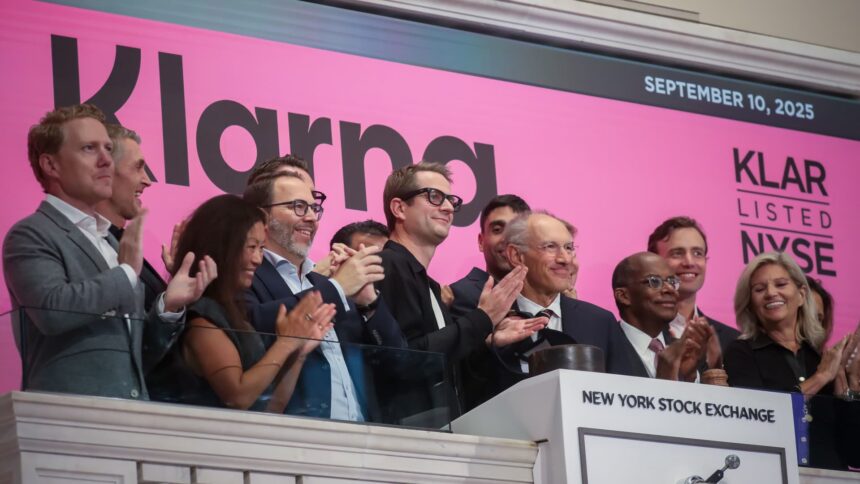Klarna Holding AB made a striking debut on the New York Stock Exchange (NYSE) on September 10, 2025, with shares surging 30% upon opening at $52, significantly above the initial pricing of $40 set just a day prior. This successful initial public offering (IPO) raised approximately $1.37 billion, effectively valuing the Swedish fintech company at an estimated $15 billion. The launch comes amidst a broader trend of increased interest in high-profile tech IPOs this year, following similarly robust debuts from companies such as Circle and Figma.
Sebastian Siemiatkowski, co-founder and CEO of Klarna, characterized the IPO as a significant milestone akin to a wedding celebration. He emphasized the ongoing journey ahead, suggesting that while the event is monumental, it’s merely a step in Klarna’s long-term vision for growth.
The company is known for its popular “buy now, pay later” (BNPL) offerings and has recently expanded its product range to include banking services, launching a debit card and personal deposit accounts in the United States. Siemiatkowski shared that Klarna has attracted 700,000 card customers domestically and has a waiting list of 5 million eager users. He noted that Klarna’s card offerings differ from those of its main competitor, Affirm, which has garnered 2 million users since its own launch in 2021.
As Klarna steps into the public sphere, it faces potential challenges, particularly regulatory implications. In the United Kingdom, lawmakers are considering new regulations for BNPL loans, aiming to ensure better oversight and address growing concerns regarding affordability within the market.
Klarna’s IPO has significant implications for its existing investors. A substantial portion of Klarna’s shares—28.8 million—was offered publicly, translating to over $1.2 billion at the IPO price. The company raised $222 million directly from the IPO, marking a strong financial boost.
Notable investors such as Sequoia Capital, which has been involved with Klarna since 2010, have seen substantial returns. Sequoia sold 2 million of its 79 million shares during the IPO, achieving approximately $2.65 billion in returns based on the offer price. Andrew Reed, a partner at Sequoia, reflected on the journey from the firm’s early investments in Stockholm to Klarna’s impressive global footprint of over 100 million consumers and nearly 1 million merchants.
Conversely, some investors haven’t fared as well. SoftBank, which led a 2021 funding round valuing Klarna at $46 billion, has since seen its stake significantly diminish in value.
As Klarna embarks on this new chapter, the market will be closely monitoring its growth trajectory and competitive positioning in the expanding financial technology landscape.







